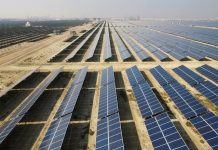DM MONITORING
ANKARA: Turkey is likely to increase its active diplomacy regarding the latest tensions in Bosnia and might even take on a mediating role as unresolved rivalries among its three ethnic groups stoke fears of a new conflict, experts said.
“Turkey is in a position of a friendly country that has been supporting Bosnia and Herzegovina’s stability, sovereignty and territorial integrity since the 1990s up to our day,” Assoc. Prof. Ali Hüseyinoğlu, deputy head of the Balkan Research Institute of the Trakya University, told Daily Sabah, “The messages delivered by the Turkish authorities from the highest level signal that Turkey will play a far more active and influential role in ebbing the tensions in the region and enhance consensus among the parties.”
Hüseyinoğlu reminded that President Recep Tayyip Erdoğan recently increased meetings with the country’s political leaders while being more involved in crafting a solution to the current crisis.
Similarly, a researcher at the Foundation for Political, Economic and Social Research (SETA), Mehmet Uğur Ekinci, said that as the crisis continues, “Turkey, an important regional actor, is expected to intensify its efforts to ensure stability. If all three sides in Bosnia and Herzegovina, as well as Serbia and Croatia, agree on Turkey’s mediation, Turkey can step in to facilitate political negotiations about the future of this country.”
He elaborated that although various stakeholders have sought Turkey’s mediation for some years, Ankara has preferred to encourage dialogue and economic cooperation “instead of getting directly involved in the complex political affairs of this country,” which might change in the light of the recent developments.
Saying that all parties in Bosnia acknowledge Turkey’s balanced and constructive approach, Ekinci added that within the trilateral mechanisms established in 2009 Turkey has also been in constant consultations with Serbia and Croatia about the political situation there.
On Jan. 18, Erdoğan said he and Serbian counterpart Aleksandar Vucic agreed to broker crisis talks involving all parties in Bosnia. While Erdoğan urged the international community to act together, Vucic, for his part, underlined that Belgrade highly respects the territorial integrity of neighboring Bosnia and Herzegovina.
“We want to convene the three leaders – of Bosniaks, Croats and Serbs – and accomplish this. We agreed on this,” Erdoğan said, adding the talks could be held in Istanbul or Belgrade.
Amid Bosnia’s greatest political crisis since the end of its 1992-95 inter-ethnic war, the country’s Serbs celebrated an outlawed holiday recently with a provocative parade showcasing armored vehicles, police helicopters and law enforcement officers with rifles, marching in lockstep and singing a nationalist song.
The Jan. 9 holiday commemorates the Bosnian Serbs’ unilateral declaration of independence from Bosnia in 1992, igniting the multi-ethnic country’s nearly four-year devastating war that became a byword for ethnic cleansing and genocide.
The holiday was banned in 2015 by Bosnia’s top court ruling that the date, which falls on a Serb Christian Orthodox religious holiday, discriminates against other ethnic groups – Muslim Bosniaks and Catholic Croats.
During the war that killed 100,000 people and turned half of the country’s population into refugees, Bosniaks and Croats were persecuted and almost completely expelled from the now Serb-administered half of Bosnia.
After the war, under the United States-brokered Dayton peace agreement terms, Bosnia was divided into two semi-autonomous governing entities – Republika Srpska and one dominated by Bosniaks and Croats.
Each part has its own government, parliament and police, but the two are linked by shared, state-wide institutions, including the judiciary, army, security agencies and tax administration. All actions at a national level require consensus from all three ethnic groups.
“The year 2021 has been marked by several crises in Bosnia and Herzegovina and 2022 similarly started in a critical manner,” Hüseyinoğlu said, pointing to the celebration of the Jan. 9 holiday, Orthodox religious statements during the Serb entity’s police and gendarmerie command’s parade this year complicated further an already complex situation.
He added that considering all these events plus the secessionist statements of Bosnian Serb nationalist leader Milorad Dodik and the upcoming elections in October 2022 will be much more difficult than the previous year in terms of rhetoric and acts.
Addressing several thousand spectators gathered in Banja Luka recently, the de-facto capital of the Serb-run part of the country, Dodik disparaged Washington’s sanctions imposed over his alleged corrupt activities and threats to tear the country apart.


